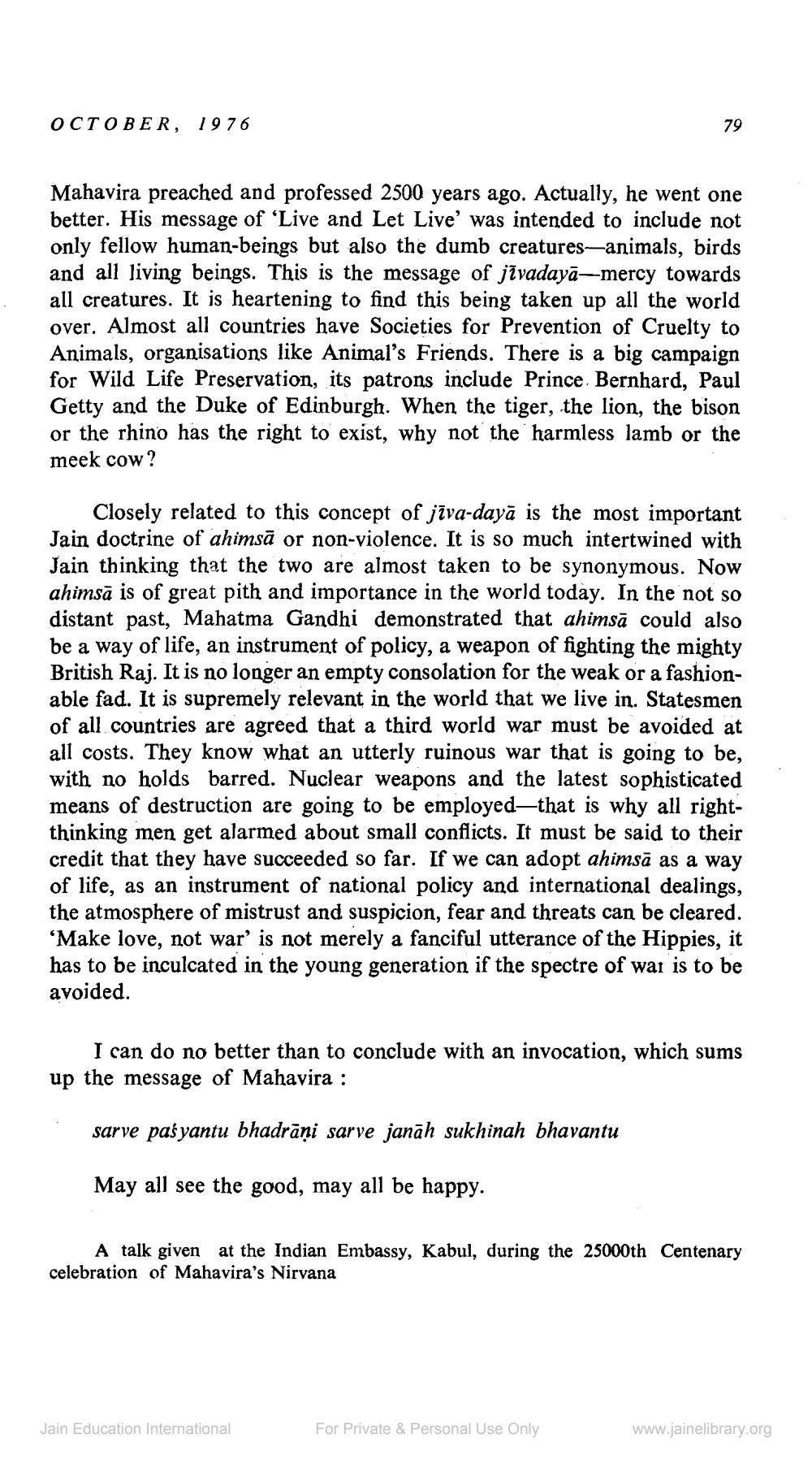________________
OCTOBER, 1976
Mahavira preached and professed 2500 years ago. Actually, he went one better. His message of 'Live and Let Live' was intended to include not only fellow human-beings but also the dumb creatures-animals, birds and all living beings. This is the message of jivadayā-mercy towards all creatures. It is heartening to find this being taken up all the world over. Almost all countries have Societies for Prevention of Cruelty to Animals, organisations like Animal's Friends. There is a big campaign for Wild Life Preservation, its patrons include Prince Bernhard, Paul Getty and the Duke of Edinburgh. When the tiger, the lion, the bison or the rhino has the right to exist, why not the harmless lamb or the meek cow?
79
Closely related to this concept of jīva-dayā is the most important Jain doctrine of ahimsa or non-violence. It is so much intertwined with Jain thinking that the two are almost taken to be synonymous. Now ahimsa is of great pith and importance in the world today. In the not so distant past, Mahatma Gandhi demonstrated that ahimsa could also be a way of life, an instrument of policy, a weapon of fighting the mighty British Raj. It is no longer an empty consolation for the weak or a fashionable fad. It is supremely relevant in the world that we live in. Statesmen of all countries are agreed that a third world war must be avoided at all costs. They know what an utterly ruinous war that is going to be, with no holds barred. Nuclear weapons and the latest sophisticated means of destruction are going to be employed-that is why all rightthinking men get alarmed about small conflicts. It must be said to their credit that they have succeeded so far. If we can adopt ahimsa as a way of life, as an instrument of national policy and international dealings, the atmosphere of mistrust and suspicion, fear and threats can be cleared. 'Make love, not war' is not merely a fanciful utterance of the Hippies, it has to be inculcated in the young generation if the spectre of war is to be avoided.
I can do no better than to conclude with an invocation, which sums up the message of Mahavira :
sarve pasyantu bhadrāṇi sarve janah sukhinah bhavantu
May all see the good, may all be happy.
A talk given at the Indian Embassy, Kabul, during the 25000th Centenary celebration of Mahavira's Nirvana
Jain Education International
For Private & Personal Use Only
www.jainelibrary.org




